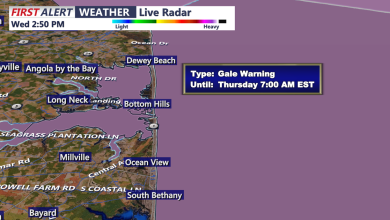The Cocaine Kingpin Living Large in Dubai

Most of the Super Cartel’s top members have since been brought to justice. Taghi was arrested in Dubai in 2019 and deported to the Netherlands, whose ports have become drug-trafficking hubs. He stood trial and was sentenced to life in prison, in a courthouse so heavily fortified that it is known as the Bunker. (Despite the security precautions, the brother and the lawyer of a state’s witness, as well as the Dutch crime journalist Peter R. de Vries, were murdered during the proceedings.) Gačanin was arrested in Dubai in 2022, as part of a transnational effort known as Operation Desert Light. The next year, he was convicted by a Dutch court; Gačanin later made a deal with prosecutors in which he was sentenced to seven years in prison and forced to pay a million-euro fine. Riquelme is also imprisoned in the Netherlands; he was sentenced to eleven years. Imperiale was apprehended in 2021 and later deported to Italy, where he is now incarcerated.
But Kinahan—who, through his lawyer, declined to comment for this article—remains at large in Dubai. In April, 2022, the Kinahan Organized Crime Group was sanctioned by the U.S. Department of the Treasury’s Office of Foreign Assets Control, which compared the group to “Mexico’s Los Zetas, Japan’s Yakuza and Russia’s ‘Thieves In Law.’ ” The U.S. Ambassador to Ireland announced that a five-million-dollar reward would be given for tips leading to the arrest of Kinahan; his father, Christy Kinahan, Sr.; or his brother, Christy Kinahan, Jr. But, according to a former D.E.A. agent, American law enforcement cared about only one Kinahan. As the agent put it, “It’s all about Dan.”
Portlaoise Prison, which is in the center of Ireland, is a nineteenth-century penitentiary built like a fortress—a one-star establishment, at best. In 1997, twenty years before the Dubai wedding, Christy Kinahan, Sr., was imprisoned in a rodent-infested block called the E Wing. Inmates slept one to a cell and urinated in buckets.
Kinahan, Sr., grew up in a middle-class family in Dublin. He became involved in petty crime at a young age, initially check fraud. Well-dressed, and able to affect a refined Anglo-Irish accent, Kinahan, Sr., was an adept con man. All criminals love nicknames, but the Irish do them best: the Penguin, the Viper, Fatso. Kinahan, Sr., became the Dapper Don.
In the late seventies, heroin began ravaging Dublin’s inner-city projects. A man named Larry Dunne was the city’s first godfather of heroin importers, but he was jailed in 1985. Kinahan, Sr., seeing a business opportunity, filled the gap. A sharp young detective, Michael O’Sullivan, noticed him. “There was somebody new in the market, and it just didn’t fit,” O’Sullivan told me. “Often, people in the heroin business get messy. They know the heroin trade because they use heroin.” But, in O’Sullivan’s opinion, Kinahan, Sr., wasn’t a dope fiend, and he ran an efficient business.
One day in 1986, O’Sullivan disguised himself as an electrician and followed Kinahan, Sr., to his apartment, where he caught him with a large quantity of heroin. The police later found other contraband, as well as various language-studies cassettes—Kinahan, Sr., was teaching himself French and Arabic. He was convicted of heroin possession, jailed for six years, and released in 1992. Months later, he was caught with stolen checks. The arresting officer told me that Kinahan, Sr., was an “impressive, kind of intelligent guy—no aggression.” After the arrest, Kinahan, Sr., was granted bail, then vanished.
“Here’s your problem.”
Cartoon by Edward Steed
By the mid-nineties, Irish organized crime had outgrown the country’s policing capacity. Drugs were pouring in; kidnappings and bank jobs were being perpetrated with seeming impunity. In 1996, a crime journalist, Veronica Guerin, was shot dead by a member of a gang that she’d covered, the Gilligans. The public outrage that followed led the Irish government to establish the Criminal Assets Bureau, which allowed lawmakers to seize money and property from convicted criminals.
The formation of the bureau, however, had an unintended consequence: it turned some Irish criminals into international potentates. Many Dublin mobsters moved to Amsterdam, which at the time was not unlike the cantina in “Star Wars”: a place where an assortment of major villains could freely hang out, exchange contacts, and collaborate. Kinahan, Sr., became one such expat. Another was John Cunningham, who’d been jailed, in 1986, on a kidnapping charge; he’d escaped from a prison south of Dublin in 1996. Cunningham and Kinahan, Sr., began working together, transporting heroin, cannabis, cocaine, Ecstasy, and guns to Ireland. During the same period, the Dutch police caught Kinahan, Sr., with a cache of drugs and weapons, and imprisoned him for a year. Upon serving his sentence, he went back to work. In 1997, Kinahan, Sr., returned to Ireland to attend his father’s funeral, where he was arrested for the check fraud that had led him to skip bail four years earlier. He wound up in Portlaoise.





